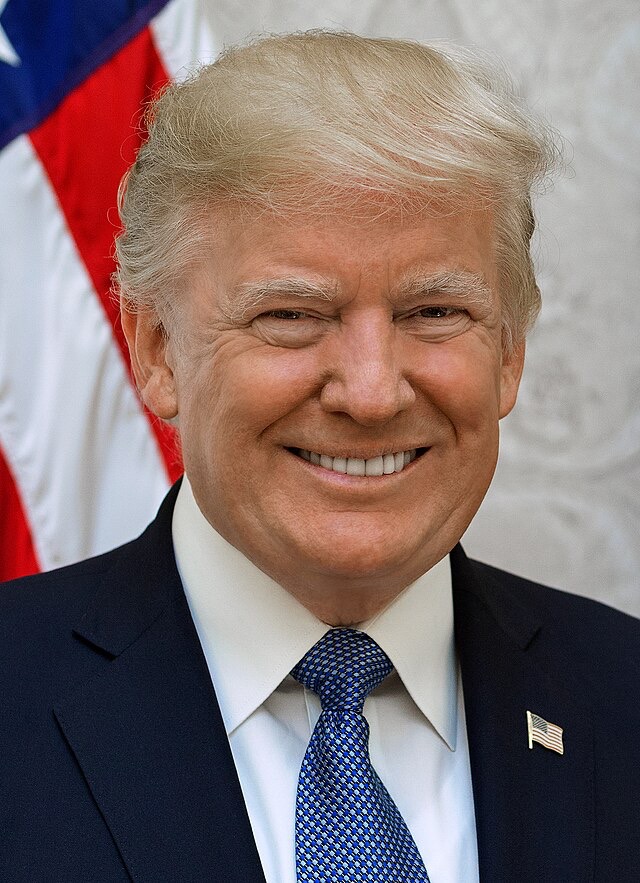Coca-Cola will introduce a version of its flagship drink made with cane sugar in the United States this autumn, the company confirmed on Tuesday, days after President Donald Trump claimed credit for persuading the beverage giant to make the switch from high-fructose corn syrup.
The Atlanta-based company announced during its quarterly earnings call that it plans to launch “an offering made with U.S. cane sugar” to expand its product range, marking the first time the classic cola will be officially produced with cane sugar for the American market since the 1980s. The new variant will complement rather than replace the existing corn syrup-sweetened formula that has been standard in the US for nearly four decades.
We appreciate the president’s enthusiasm for our Coca-Cola brand,” said chairman and chief executive James Quincey during Tuesday’s investor call. “This addition is designed to complement our strong core portfolio and offer more choice across occasions and preferences.”
The announcement follows Trump’s unexpected social media post last Wednesday on his Truth Social platform, where he declared: “I have been speaking to Coca-Cola about using REAL Cane Sugar in Coke in the United States, and they have agreed to do so.” The president, known for his fondness for Diet Coke and who has reinstalled his famous “Diet Coke button” in the Oval Office, added: “This will be a very good move by them – You’ll see. It’s just better!”
Health and Human Services Secretary Robert F. Kennedy Jr, who leads the administration’s Make America Healthy Again (MAHA) initiative, welcomed the development in an exclusive statement to media outlets on Friday. “Americans deserve access to the same natural foods that other countries enjoy and the President is delivering that,” Kennedy said, despite having declared just three months ago that sugar “is poisoning us.”
The move has exposed tensions within Trump’s health agenda, with nutrition experts questioning whether switching sweeteners represents meaningful reform. Dr Dariush Mozaffarian, director of the Food is Medicine Institute at Tufts University, said the change would have no health benefits. “Both high-fructose corn syrup and cane sugar are about 50% fructose, 50% glucose, and have identical metabolic effects,” he stated.
Marion Nestle, professor emeritus at New York University and one of America’s foremost nutrition authorities, called the initiative “nutritionally hilarious.” She explained: “Whether Coca-Cola contains cane sugar or high-fructose corn syrup, it will still contain virtually the same amount of calories and lots of sugar.”
The announcement has sparked immediate backlash from the corn industry. John Bode, president of the Corn Refiners Association, warned the switch could have severe economic consequences. “Replacing high fructose corn syrup with cane sugar would cost thousands of American food manufacturing jobs, depress farm income, and boost imports of foreign sugar, all with no nutritional benefit,” he said in a statement.
Coca-Cola introduced high-fructose corn syrup to its American formula in the mid-1980s, driven by federal corn subsidies that made the sweetener significantly cheaper than imported cane sugar. The company reported using the substitute in bottled and canned products whilst maintaining flexibility to use other sweeteners based on market conditions.
Mexican Coca-Cola, which has long been sweetened with cane sugar, has developed a devoted following among American consumers who import it believing it tastes superior. The beverage is colloquially known as “Mexican Coke” and commands premium prices in speciality shops and restaurants across the United States.
Kellyanne Conway, former White House counsellor, supported the taste preference on the Trump 100 podcast last week, stating: “Coke in Mexico is way better than Coke in the US, there’s no doubt about it.
The relationship between Trump and Coca-Cola has evolved significantly since his first term. In 2012, Trump wrote on social media that “the Coca Cola company is not happy with me – that’s okay, I’ll still keep drinking that garbage.” However, tensions appeared to ease when Quincey visited Trump’s Mar-a-Lago resort in Florida this January, presenting him with a commemorative inauguration-themed Diet Coke bottle.
Barry Popkin, nutrition professor at the University of North Carolina, who initially raised concerns about high-fructose corn syrup in the early 2000s, said subsequent clinical trials found no metabolic differences between the sweeteners. It’s rumour-based science as contrasted by real science,” he said of the current debate.
The MAHA Commission report released in May identified high-fructose corn syrup as potentially contributing to childhood obesity, type 2 diabetes, and nonalcoholic fatty liver disease. However, the American Medical Association maintains that corn syrup is no more likely to cause obesity than table sugar or other full-calorie sweeteners.
Vani Hari, an activist known as the Food Babe, defended Kennedy’s position, arguing the issue extends beyond sugar content. “He understands how food is produced in this country. He understands the downstream impacts on human health,” she said, citing concerns about glyphosate, a pesticide commonly used on corn crops.
Coca-Cola defended its current formula in recent social media posts, stating: “High fructose corn syrup (HFCS) —which we use to sweeten some of our beverages—is actually just a sweetener made from corn. It’s safe; it has about the same number of calories per serving as table sugar.”
The company emphasised that all its products are “wholesome beverages manufactured in compliance with the federal law governing food safety and labelling” in over 200 countries where they are sold.
Financial implications remain unclear, as cane sugar typically costs more than corn syrup and has a shorter shelf life. The company did not specify pricing for the new variant or whether it would affect the current product line’s availability.
Follow for more updates on Britannia Daily
Image Credit:
Donald Trump official portrait (cropped) – Photo by Shealah Craighead, official White House photographer. Public domain, via Wikimedia Commons.



